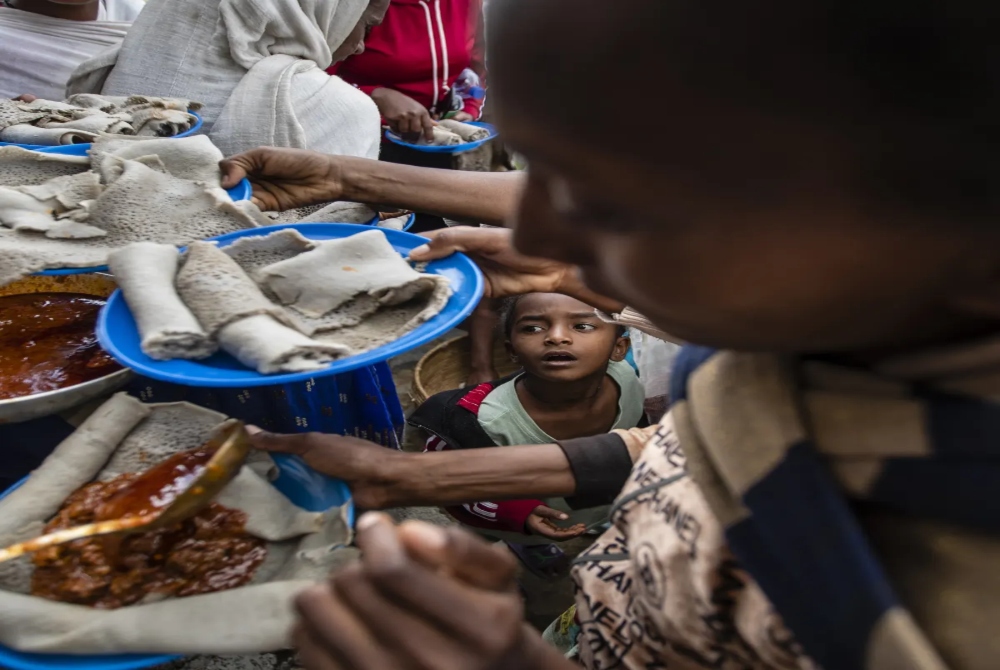The Crisis of UN Peacekeeping: Challenges and Changes in
Global Conflict Management
At the end of this year, the last UN peacekeepers are set to
leave the Democratic Republic of the Congo (DRC), concluding a two-decade-long
mission that has faced significant challenges and criticism. Known as MONUSCO,
this mission has been the largest and costliest in UN history. Despite its
scale, eastern DRC remains plagued by humanitarian crises, with more than 100
armed groups active and a resurgent M23 rebel group threatening major towns.
MONUSCO’s 16,000 personnel were tasked with stabilizing the
region and protecting civilians, yet they have struggled to achieve these
goals. President Félix Tshisekedi has pushed for their expedited withdrawal,
reflecting both public frustration and a broader discontent with the UN's
effectiveness in the region. This sentiment is echoed in other conflict zones,
from the Central African Republic to South Sudan, where UN missions face
similar criticisms.
Tshisekedi has turned to regional forces for assistance,
bypassing MONUSCO's capabilities. In 2022, he invited East African Community
forces, and when they refrained from offensive actions, he sought help from
southern African troops. However, the absence of a comprehensive peace process
and efforts to address the structural issues that fuel conflict has allowed
instability to persist.
Crisis of Legitimacy
UN peacekeeping, despite historically reducing violence and
civilian casualties, is currently facing a legitimacy crisis. No major new
deployments have occurred since 2014, even as global conflicts reach levels
unseen since World War II. The era of large, complex operations aimed at
state-building appears over.
Solomon Dersso of Amani Africa points to a "crisis on
the demand and supply side." Host countries and their citizens often have
unrealistic expectations of what peacekeeping can achieve, creating a gap that
fuels disappointment and criticism.
Three main challenges confront UN peacekeeping today: the
evolving nature of conflicts, often involving well-armed and agile adversaries;
unrealistic mandates from the UN Security Council; and the fragmented
international system's power politics. These factors collectively contribute to
a retreat from liberal internationalism.
Shift to Larger Missions
Traditional peacekeeping principles - consent of the parties,
impartiality, and limited use of force - are increasingly challenged by
contemporary conflicts involving militias, criminal gangs, and jihadist
insurgents. These groups’ fragmented and opportunistic nature complicates
mediation efforts, and their radical agendas often preclude negotiated
settlements.
Modern UN missions, now labeled as “stabilization” efforts,
support national governments in extending authority, which compromises
impartiality. They also assist in counter-insurgency operations, raising human
rights concerns. However, the UN lacks the necessary doctrines and technical
skills for war-fighting, and troop-contributing nations are reluctant to risk
their soldiers.
These multidimensional missions encompass broader roles like
security sector reform, rule of law, and development projects. However, they
tend to be large, expensive and slow to mobilize, fostering political inertia
and military stalemate.
Financial and Geopolitical Strains
A new frugality in peacekeeping is partly due to financial
pressures, notably former US President Donald Trump's refusal to pay the full US-assessed
contribution, leading to budget cuts. This austerity has fueled perceptions of
inefficiency and prompted a shift towards cheaper, less risky political
missions.
Peacekeeping is also affected by ideological divisions
within the Security Council, as seen in Mali where the government demanded the
UN’s withdrawal amid deteriorating security and closer ties with Russia. UN
Secretary-General António Guterres’s New Agenda for Peace acknowledges this
gridlock and advocates for regional peace enforcement efforts, funded by UN
member states.
Regional Solutions
The African Union (AU) and sub-regional bodies have launched
numerous peace support operations, such as the EU-funded AMISOM in Somalia.
These African-led missions are seen as quicker and cheaper interventions that
can use force more freely than UN peacekeepers.
However, military interventions alone do not create peace.
Effective peacebuilding requires leveraging local processes and improving
governance through political and diplomatic efforts. Better governance involves
building consensus within societies and among national actors, a task that
extends beyond military solutions.
In summary, the UN peacekeeping system is grappling with
significant challenges in adapting to modern conflicts, facing financial
constraints, and navigating geopolitical tensions. The future of international
peacekeeping may lie in more agile and regionally-led efforts, supported by
comprehensive political strategies to address the root causes of conflict.










.jpg)